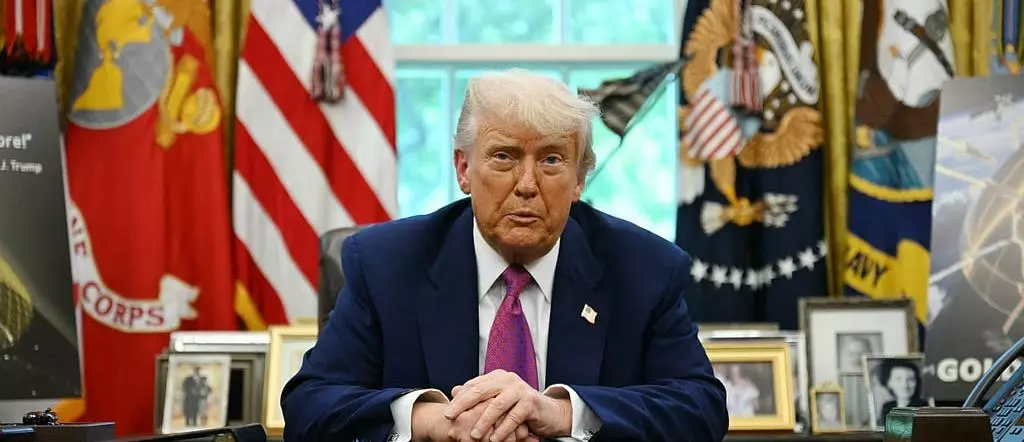
Report states US halts student visa interviews; stricter social media vetting
text_fieldsPhoto: AFP
The Trump administration has instructed U.S. embassies and consulates around the world to temporarily stop scheduling new visa interviews for international students and exchange visitors, according to a report by Politico.
This pause reportedly comes as the administration considers implementing a policy that would require all foreign applicants to undergo mandatory social media screening.
The directive, based on an internal State Department cable, advises consular offices not to increase appointment availability for F, M, and J visa categories until further notice, as officials prepare for the potential expansion of vetting procedures.
The decision is reportedly part of a broader effort by President Donald Trump's administration to tighten control over universities, which has included cutting funding, limiting research programs, and taking action against students participating in campus protests.
Unlike previous policies that mainly focused on returning students—especially those protesting Israel’s military actions in Gaza—the proposed social media screening would extend to all new visa applicants, TNIE reported.
A State Department cable issued on Tuesday cites executive orders aimed at combating terrorism and antisemitism as the rationale for the move, though it does not clarify what specific online activity might lead to a visa being denied.
The proposed changes could significantly impact U.S. universities, which rely heavily on international student enrollment, particularly from countries like India and China, as they face the possibility of heightened visa restrictions.
The proposed policy requiring mandatory social media screening for all international student applicants could lead to delays in visa processing and negatively affect institutions that depend on high levels of foreign student enrollment.
This move follows closely on the heels of the Trump administration’s decision to prevent Harvard University from admitting and accommodating international students, a move that led the prestigious institution to file a lawsuit in response.
The ban was later suspended by a judge, calling it unconstitutional.
Earlier today, the administration reportedly instructed federal agencies to terminate contracts with Harvard worth approximately $100 million.
Harvard currently sponsors over 7,000 individuals on F-1 and J-1 visas, which are designated for international students and exchange visitors participating in programs like fellowships.
International students make up around 26% of the total enrollment across all of Harvard’s schools.
Importantly, the U.S. government has the authority to remove colleges from the Student and Exchange Visitor Program, which would bar them from hosting international students on campus.
Typically, such removals are based on legal and administrative criteria, such as failing to maintain accreditation, not having adequate classroom facilities, failing to hire properly qualified staff, or even failing to “operate as a bona fide institution of learning.”


















